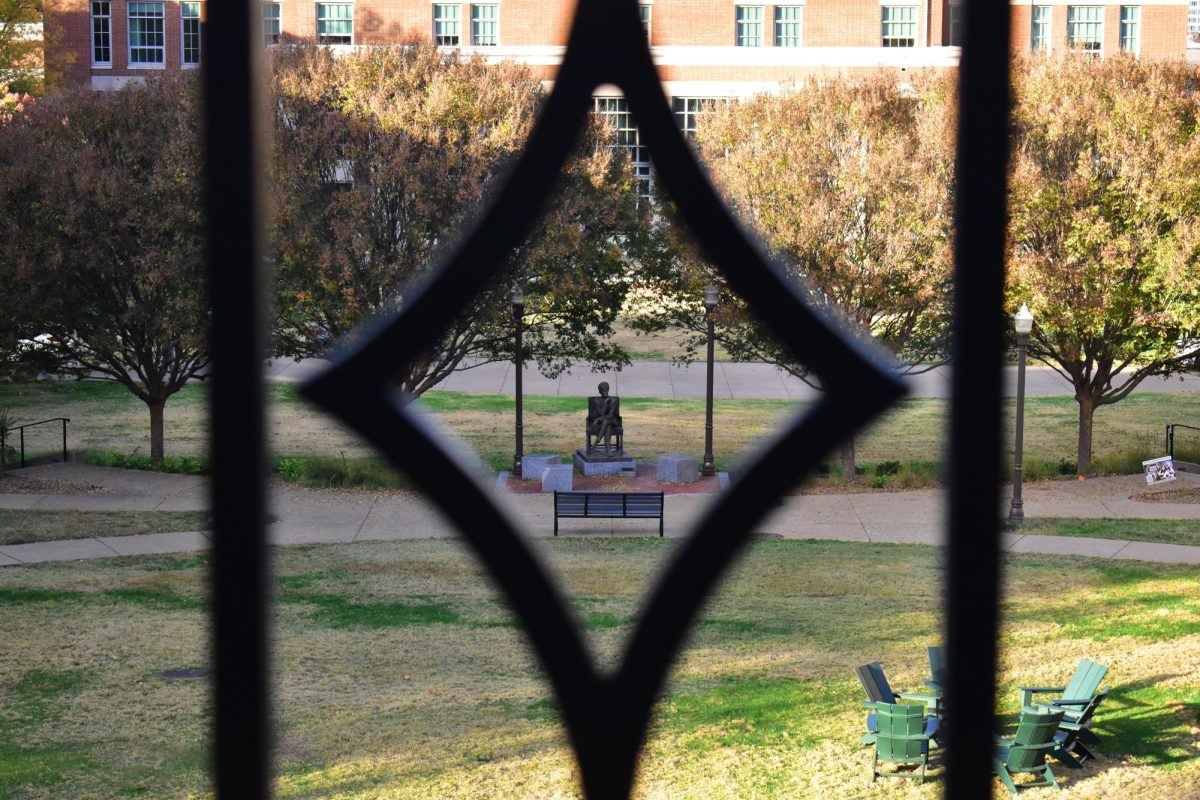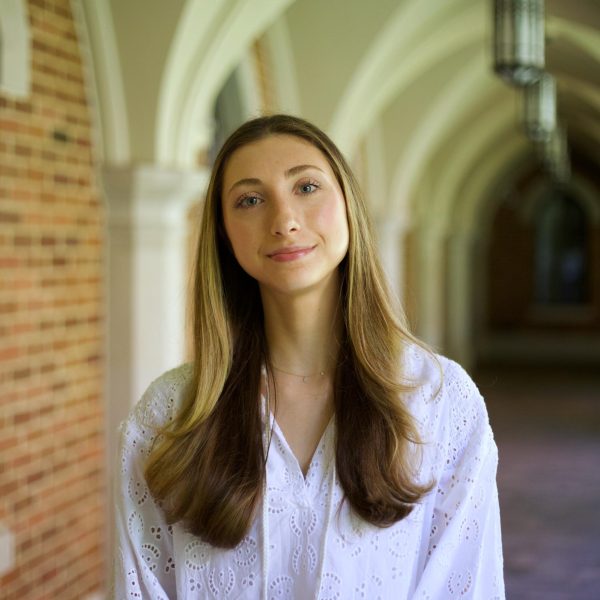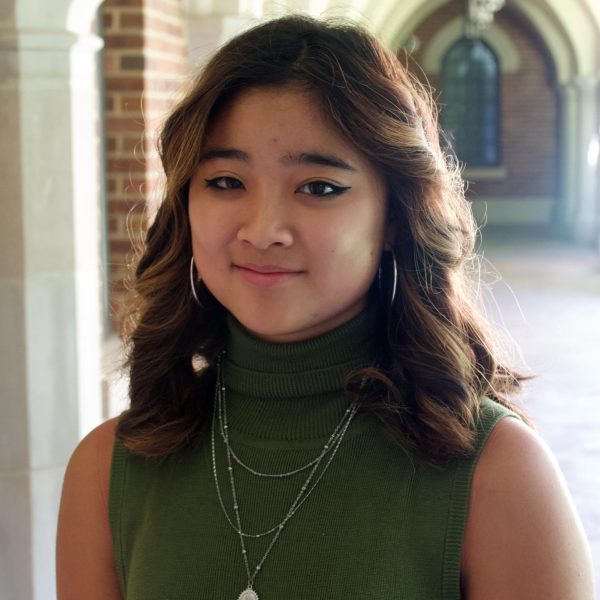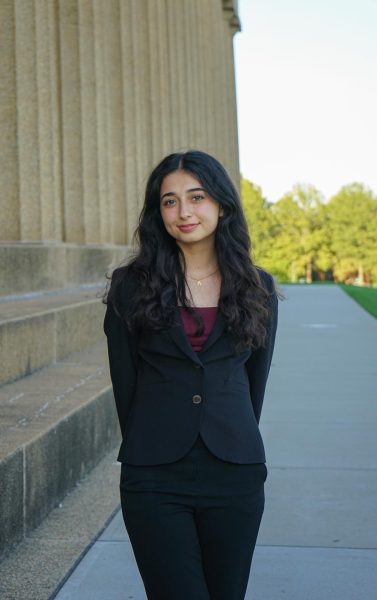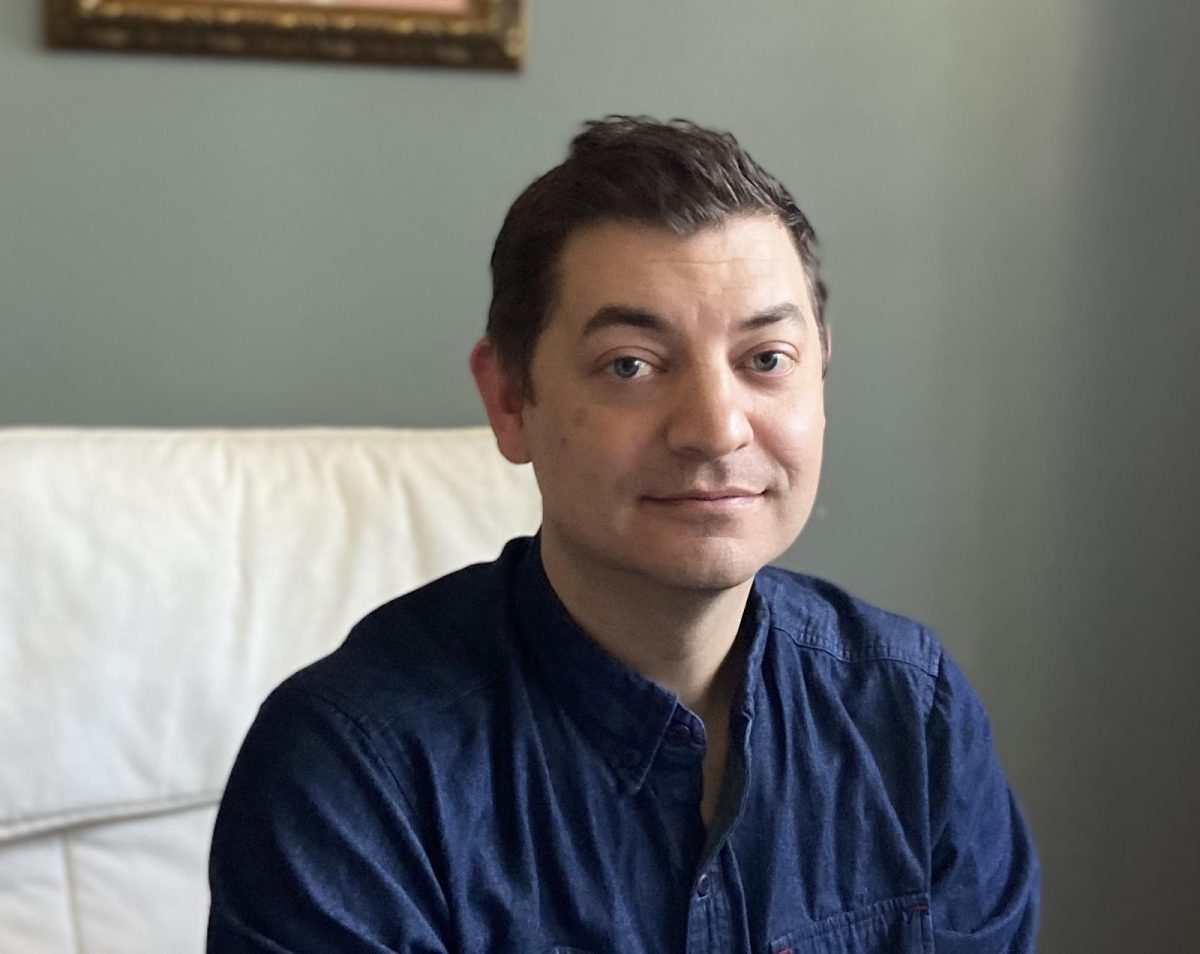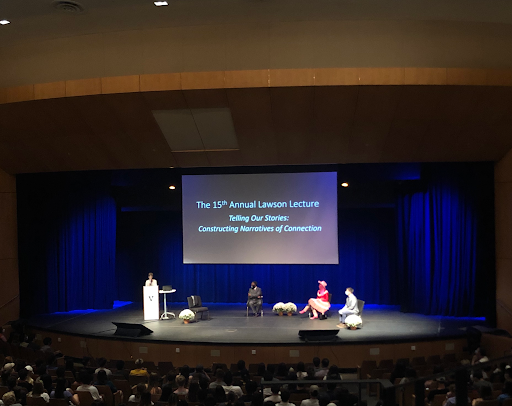Author and journalist Mónica Guzmán delivered the 18th annual Lawson Lecture at Langford Auditorium on Sept. 10. She is the author of the 2024 Campus Reading, “I Never Thought of It That Way,” which addresses the divides present in modern-day politics and offers strategies to engage in difficult conversations.
The Hustler sat down with Guzmán after the Lawson Lecture to discuss her intentions with the book and potential implications for college students in an election year.
Vanderbilt Hustler: What was your goal with your book?
Guzmán: My main goal was to persuade people to become more curious in any area of their life where they want to practice more curiosity. I say in the book that this is about crossing the divides you want to cross and not the ones you don’t.
I have been absolutely floored by emails from readers all across the country who have changed relationships with family members or have decided to engage on a political issue — my goodness, it’s been pretty overwhelming. I can only tell by the evidence of impact on real people, whether my book achieved many of those goals, and I have seen that evidence out in the world.
But the other thing I will say is I am not in control of how people respond and react to the book. When you hand someone a book, you hand someone an idea. It’s as much about the container you’re bringing it to, that bottomless mystery of a person’s life, as it is about the idea. So I’ve learned a lot just by seeing the diversity of reaction to the book — critical, accepting, scrutinizing, grateful.
What does it mean to you to share this message with a college audience?
I feel really honored to be speaking to a lot of people who are living out of their childhood home for the first time. College is where you begin to define how you show up in community and as an individual.
I know that my book is about politics and the political divide, but what I keep hearing is that it’s about all relationships and communication. As first-year students, you are entering a climate of endless collisions, where opportunities for friction, disagreement or difference are everywhere.
Through all the events you’re going to have, all the speakers who are going to come in and all the classroom discussions, you’re going to hear something that makes you uncomfortable. What are you going to do? Will you say anything? Will you dare? Each of those is a place to practice your independence while you are also learning what it is to be in a community. That is a never ending, beautiful tension.
What’s your opinion on Vanderbilt’s policies of institutional neutrality?
I’ve known about institutional neutrality for a while, but I’m still very open to it. The more I learn about it, the more complexity I really see. I understand the fear that a policy of institutional neutrality might end up having unintended consequences, so what you do to mitigate the concerns people have about it is a really good conversation.
The idea of an institution not taking a side so everyone on the campus can exercise those debates without feeling like those in power are going to side one way or the other seems like a really good concept to me. The question is are people going to trust it? What concerns do they have, and can those concerns be heard?
How would you suggest that we use social media in a positive way to facilitate bridge-building conversations?
One thing is to know why you are there when you get onto social media. Come in very intentionally. I post because I enjoy sharing my story with people around me. I follow this hashtag because I want to stay informed, and so I’m going to remain attentive and make sure my critical voices remain on as I ingest information from a network that prioritizes reaction over reflection. Be intentional so that the tool is serving you and you’re not serving the tool.
How would you suggest people hold back from getting offended by things that other people post on social media?
I don’t think that we can hold back from being offended. Some people use the word “triggered.” That is a physical, unconscious reaction. It happens because of the path that brought you here, your past experiences and the things that you’ve grown to be afraid, excited or concerned about.
The only thing you can control is what you do next and your reaction. So if you feel triggered by social media, instead of continuing to be on autopilot and allowing a reaction that causes you to say something you later regret or getting angry with someone without asking what they might mean, stop and pause. Notice I’m reacting to this. I know that this tends to do this to me. What am I missing? What might I not know? Maybe I should stop here.
How would you recommend that young people stay curious?
One avenue that comes to mind is the importance of building resilience and steadiness in yourself. There are a lot of signals out there that we read as a message that we are not eligible to voice our opinion on this or on that. “I don’t know enough,” “I don’t have the right background.” “The people in this room are not going to understand me.” There’s a school of thought where the goal is to eliminate all the barriers for everyone.
I think it’s impossible to police what people can say to make sure anyone can say anything so that all the barriers come down. But I do think that often it’s really good to bring awareness so that people can come in their best and try to build those contexts where we can receive each other as we really are.
I think what we often miss is that each of us can practice believing enough in our eligibility. Just being here in America, that’s the only requirement I think you need to have an opinion on something that affects us. But it can be easy to forget that and can be hard when you are the minority opinion.
That’s going to come with a lot of risk, and it can take time, especially when you’re young, and you’re living in a world that tells you that you still have a lot to learn and are not ready. But college is in part that time to become fully realized, and one of the ways you do that is to push your edge.
Choose one thing per month where you’re scared and don’t want to do it. Do it anyway. Little by little, you’ll build that steadiness in yourself. What we try to do as a society to welcome people has to be met with what we do as individuals to feel that eligibility — that we are here and we are worth listening to.
Responses have been edited for length and clarity.

